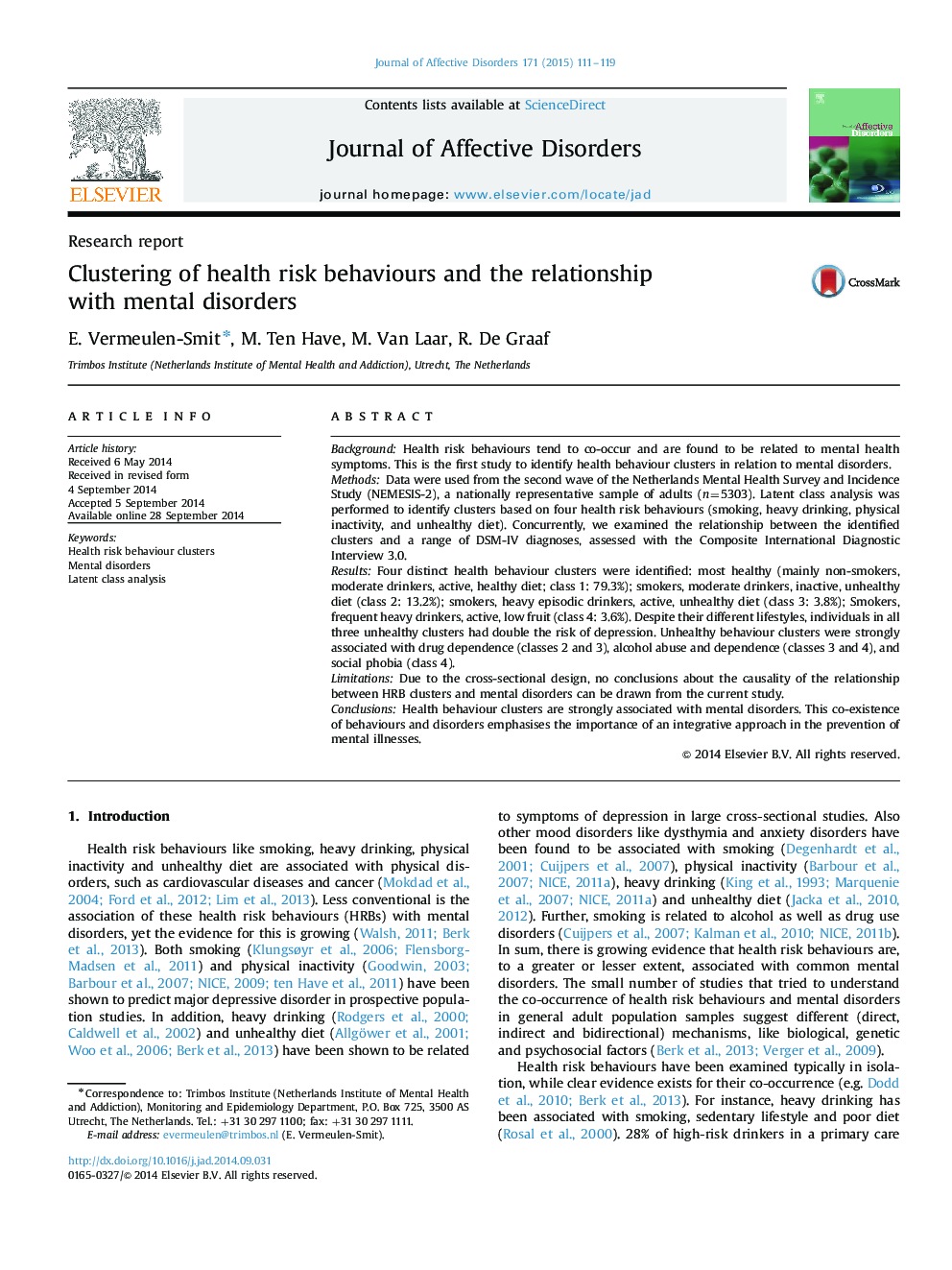| Article ID | Journal | Published Year | Pages | File Type |
|---|---|---|---|---|
| 6232376 | Journal of Affective Disorders | 2015 | 9 Pages |
BackgroundHealth risk behaviours tend to co-occur and are found to be related to mental health symptoms. This is the first study to identify health behaviour clusters in relation to mental disorders.MethodsData were used from the second wave of the Netherlands Mental Health Survey and Incidence Study (NEMESIS-2), a nationally representative sample of adults (n=5303). Latent class analysis was performed to identify clusters based on four health risk behaviours (smoking, heavy drinking, physical inactivity, and unhealthy diet). Concurrently, we examined the relationship between the identified clusters and a range of DSM-IV diagnoses, assessed with the Composite International Diagnostic Interview 3.0.ResultsFour distinct health behaviour clusters were identified: most healthy (mainly non-smokers, moderate drinkers, active, healthy diet; class 1: 79.3%); smokers, moderate drinkers, inactive, unhealthy diet (class 2: 13.2%); smokers, heavy episodic drinkers, active, unhealthy diet (class 3: 3.8%); Smokers, frequent heavy drinkers, active, low fruit (class 4: 3.6%). Despite their different lifestyles, individuals in all three unhealthy clusters had double the risk of depression. Unhealthy behaviour clusters were strongly associated with drug dependence (classes 2 and 3), alcohol abuse and dependence (classes 3 and 4), and social phobia (class 4).LimitationsDue to the cross-sectional design, no conclusions about the causality of the relationship between HRB clusters and mental disorders can be drawn from the current study.ConclusionsHealth behaviour clusters are strongly associated with mental disorders. This co-existence of behaviours and disorders emphasises the importance of an integrative approach in the prevention of mental illnesses.
